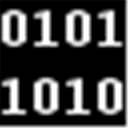XML Alternatives

XML
Extensible Markup Language (XML) is a markup language that defines a set of rules for encoding documents in a format which is both human-readable and machine-readable. It is defined by the W3C's XML 1.0 Specification[2 and by several other related specifications, all of which are free open standards.
The design goals of XML emphasize simplicity, generality and usability across the Internet. It is a textual data format with strong support via Unicode for different human languages. Although the design of XML focuses on documents, it is widely used for the representation of arbitrary data structures such as those used in web services.
Several schema systems exist to aid in the definition of XML-based languages, while many application programming interfaces (APIs) have been developed to aid the processing of XML data.
Best XML Alternatives
When deciding on the best XML alternative, consider these alternatives. Check out these other software with a similar interface and features as well.

YAML
FreeOpen SourceMacWindowsLinuxYAML 1.2 --- YAML: YAML Ain't Markup Language What It Is: YAML is a human friendly data serialization standard for all programming languages.

JSON
FreeSelf-HostedJavaScriptJSON (JavaScript Object Notation) is a lightweight data-interchange format. It is easy for humans to read and write. It is easy for machines to parse and generate. It is...

TOML
FreeOpen SourceMacWindowsLinuxTOML aims to be a minimal configuration file format that's easy to read due to obvious semantics. TOML is designed to map unambiguously to a hash table. TOML should...

Eno
FreeOpen SourceMacWindowsLinuxThe eno notation language is a plain-text data format designed for file-based content. The language itself is very simple but expressive enough to be able to handle...
Upvote Comparison
Interest Trends
XML Reviews
Add your reviews & share your experience when using XML to the world. Your opinion will be useful to others who are looking for the best XML alternatives.
Table of Contents